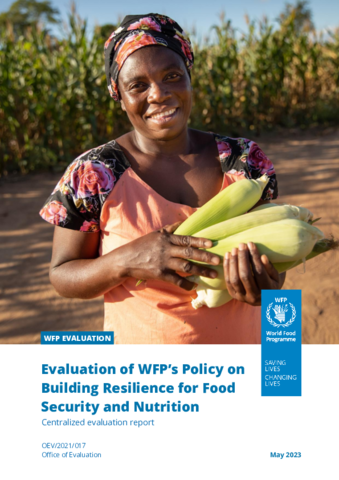
The evaluation assessed the quality and results of the policy, along with the factors that enabled and hindered those results.
It covered the period 2015-2022.
The evaluation concluded that:
- While a resilience policy is relevant to WFP’s mandate, it no longe fulfils its role in positioning WFP in the resilience landscape and should be updated for greater conceptual clarity. The lack of an accountability framework has impeded systematic uptake across the organization.
- Increasing support across all the programming areas to achieve resilience objectives will help WFP play a more effective and enabling role across the nexus. Guidance is also needed to facilitate integrated programming and to better consider gender and social inclusion aspects.
- WFP has achieved some consistent outcomes in absorptive capacity. However, evidence of WFP’s contribution to other resilience capacities is yet to be fully demonstrated.
- Monitoring and reporting frameworks do not adequately support the measurement of resilience results, though improvements are underway.
- WFP needs to reconsider its organizational structures, human resources, funding, and partnership strategies, to truly embrace a resilience agenda.
- Lack of long-term and multi-year funding sources constrains progress in resilience. While leveraging humanitarian funding can offer an interim solution, forward planning is required to ensure medium-term programming and funding intentions are aligned.
